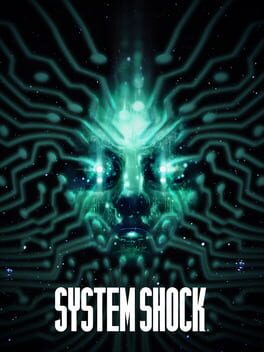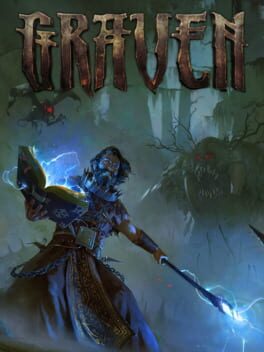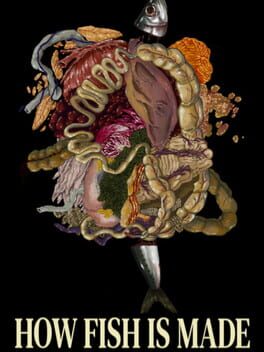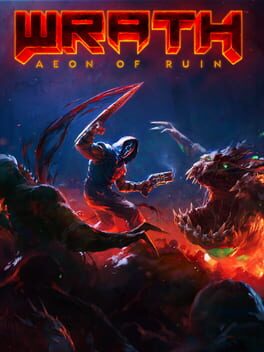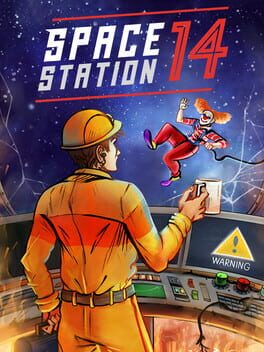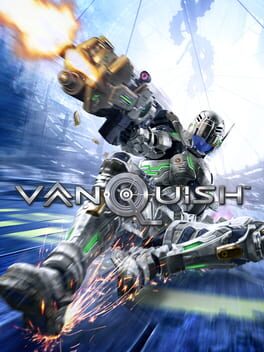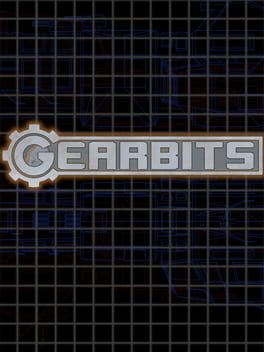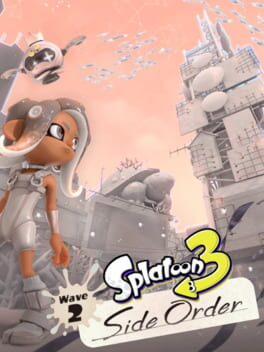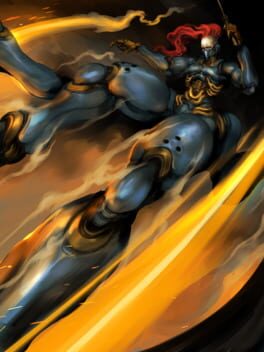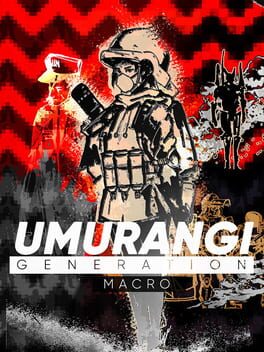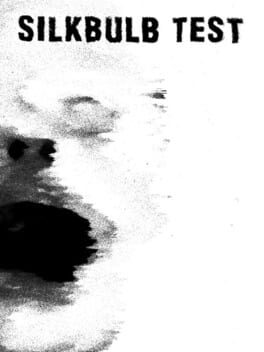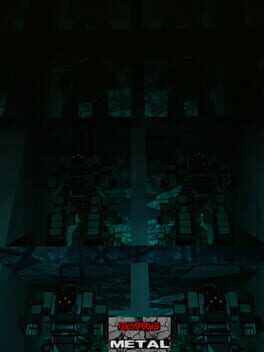AuTomaton
2024
There are three games in Animal Well. Following the creator's desire for Animal Well to be layers of puzzles that you don't even realize are there, playing one layer will slowly chip away at the next layer down until you can start piecing the next layer together.
The first layer, finding the flames and getting to the credits, is a beautifully rendered tour of fantastical life. There is no stillness or dryness anywhere in the Well (except for tiny, dark caverns here and there). The richness of the Well's ecosystem is constantly in the player's eye: fireflies and bird flocks and creature homes and the ever present sound of dripping, flowing, and pooling water. This constant motion and color is alive in a more literal way than even most simulated game ecosystems. The player takes a 'prey' role in this ecosystem more often than not, but in a way that presents the food chain as a blissfully uncomplicated fact of life. There are moments of tension while engaging with some larger creatures, but for the most part the player has a neutral, candid relationship with the creatures around them. Exploring the well, with all these audio and visual elements in play, engenders a feeling or experiencing a form of nature that is so genuine it can only be topped by actually going outside. It's an excellent experience to desire for a player and Animal Well is an excellent execution to go along with it.
The second layer, finding all the eggs, is about what you'd expect from a puzzle-adventure-platformer: you solve puzzles or you look for tools to solve puzzles. The way Animal Well presents its tools revolve around how hidden the game is supposed to be. You'll often get hints at where thing probably are, but these hints are subtle at times. You'll need to be aggressively taking notes about every little detail to save yourself the trouble of searching through the map multiple times for missed ledges and background details. There's not much wrong with that, I suppose, as Animal Well gets easier to navigate the more tools that you find, but the lack of travel options can slow the nature hike into a less interesting trail patrol.
The third layer, post-game secrets, is something I didn't play for a reason. There is at least 1 puzzle in Animal Well that cannot be completed with 1 unmodified copy of the game. Cooperating with others, specifically large group cooperation, is mandatory to find all the post-game secrets. But, because of how the Internet works, the only way to participate in this group cooperation was to be in the right Discord Servers within the first 48 hours of the game's release. After that point, there is nothing left to solve; the only way to for-certain uncover everything in the game is to read guides. On one hand, that's super lame: the game is built in such a way that the intended experience is completely impossible to experience with the game as-provided. People who weren't part of Animal Well's very brief moment of unknowns are left with a less engaging game centered around reading internet guides. On the other hand, I respect that very same brief window as a performance of the game's design. The delicate and difficult task of creating a game that blooms in a way that is enjoyable at all is artistically riveting. I can't comment on what is must've been like to be in that performative moment (I bought the game 12 days too late), but I won't deride Animal Well for presenting it at all.
The first layer, finding the flames and getting to the credits, is a beautifully rendered tour of fantastical life. There is no stillness or dryness anywhere in the Well (except for tiny, dark caverns here and there). The richness of the Well's ecosystem is constantly in the player's eye: fireflies and bird flocks and creature homes and the ever present sound of dripping, flowing, and pooling water. This constant motion and color is alive in a more literal way than even most simulated game ecosystems. The player takes a 'prey' role in this ecosystem more often than not, but in a way that presents the food chain as a blissfully uncomplicated fact of life. There are moments of tension while engaging with some larger creatures, but for the most part the player has a neutral, candid relationship with the creatures around them. Exploring the well, with all these audio and visual elements in play, engenders a feeling or experiencing a form of nature that is so genuine it can only be topped by actually going outside. It's an excellent experience to desire for a player and Animal Well is an excellent execution to go along with it.
The second layer, finding all the eggs, is about what you'd expect from a puzzle-adventure-platformer: you solve puzzles or you look for tools to solve puzzles. The way Animal Well presents its tools revolve around how hidden the game is supposed to be. You'll often get hints at where thing probably are, but these hints are subtle at times. You'll need to be aggressively taking notes about every little detail to save yourself the trouble of searching through the map multiple times for missed ledges and background details. There's not much wrong with that, I suppose, as Animal Well gets easier to navigate the more tools that you find, but the lack of travel options can slow the nature hike into a less interesting trail patrol.
The third layer, post-game secrets, is something I didn't play for a reason. There is at least 1 puzzle in Animal Well that cannot be completed with 1 unmodified copy of the game. Cooperating with others, specifically large group cooperation, is mandatory to find all the post-game secrets. But, because of how the Internet works, the only way to participate in this group cooperation was to be in the right Discord Servers within the first 48 hours of the game's release. After that point, there is nothing left to solve; the only way to for-certain uncover everything in the game is to read guides. On one hand, that's super lame: the game is built in such a way that the intended experience is completely impossible to experience with the game as-provided. People who weren't part of Animal Well's very brief moment of unknowns are left with a less engaging game centered around reading internet guides. On the other hand, I respect that very same brief window as a performance of the game's design. The delicate and difficult task of creating a game that blooms in a way that is enjoyable at all is artistically riveting. I can't comment on what is must've been like to be in that performative moment (I bought the game 12 days too late), but I won't deride Animal Well for presenting it at all.
2023
I've never played OG System Shock, I'm assuming the remaster is faithful to the original's gameplay.
System Shock captures the oft-sought-after feeling of tactical timidness. Citadel Station is laid out, filled out, and guarded in such a way where you will be checking every bullet and every corner as you inch through the station. Unlike most games where this slow pace is enforced through anorexic ammo provisions or steamroller enemies, System Shock rewards this slow pace by allowing the player to us their 'rare' resources more often.
System Shock does not skimp on interaction tools and resources at any point; you'll always have enough ammo and grenades to engage somehow. System Shock instead asks you to organize your resources into storage spaces around the station. You must create your own supply caches and dead drops, much like a survivalist would. You have everything you need to succeed, so how will you prepare it in enemy territory so it's there when you need it? System Shock is one of (if not) the first game to approach resource economy in this way, and one of the few that actually does it well.
The environment of System Shock lends itself to this feeling of play: plenty of cramped tunnels, unnervingly open hallways, and enough lore and clutter from both sides of the SHODAN conflict to make the space feel a little bit lived in.
Personifying the game's traps and recurring spawns as SHODAN is also very cute, and builds a lot of rapport between the player and SHODAN to make the feeling of entrenched opposition even more real.
The remaster specifically does have some pain points. I don't enjoy the UE-Neon-SuperPhong shading the entire game seems to have; it takes away from the grit and environmental hostility Citadel Station wants to present, and replaces it with a toy-plastic presentation.
Damage communication is also lacking. Player-side feedback to getting hit is so poor that you won't realize you're getting hit unless you're looking directly at your attacker, and enemies barely flinch when you bash them over the head with a wrench. Granted such features were probably not in the original, but the lack enemy-side damage feedback especially makes enemy encounters feel very soft.
System Shock captures the oft-sought-after feeling of tactical timidness. Citadel Station is laid out, filled out, and guarded in such a way where you will be checking every bullet and every corner as you inch through the station. Unlike most games where this slow pace is enforced through anorexic ammo provisions or steamroller enemies, System Shock rewards this slow pace by allowing the player to us their 'rare' resources more often.
System Shock does not skimp on interaction tools and resources at any point; you'll always have enough ammo and grenades to engage somehow. System Shock instead asks you to organize your resources into storage spaces around the station. You must create your own supply caches and dead drops, much like a survivalist would. You have everything you need to succeed, so how will you prepare it in enemy territory so it's there when you need it? System Shock is one of (if not) the first game to approach resource economy in this way, and one of the few that actually does it well.
The environment of System Shock lends itself to this feeling of play: plenty of cramped tunnels, unnervingly open hallways, and enough lore and clutter from both sides of the SHODAN conflict to make the space feel a little bit lived in.
Personifying the game's traps and recurring spawns as SHODAN is also very cute, and builds a lot of rapport between the player and SHODAN to make the feeling of entrenched opposition even more real.
The remaster specifically does have some pain points. I don't enjoy the UE-Neon-SuperPhong shading the entire game seems to have; it takes away from the grit and environmental hostility Citadel Station wants to present, and replaces it with a toy-plastic presentation.
Damage communication is also lacking. Player-side feedback to getting hit is so poor that you won't realize you're getting hit unless you're looking directly at your attacker, and enemies barely flinch when you bash them over the head with a wrench. Granted such features were probably not in the original, but the lack enemy-side damage feedback especially makes enemy encounters feel very soft.
2021
2022
2019
Wrath's full release is a much more enjoyable and polished game than its early access counterpart, especially with the number of things that don't seem changed. At best, my guess is that the full release decreased the effective health of enemies and tweaked some enemy placements, but that's it. Wrath is so, so, so much more fun to play now that real paced progress is possible between soul-tether-slash-shrine checkpoints. The decrease in sandbag enemies also makes Wrath's lovely visuals, sounds, detail, and weird physics and collision issues, much easier to appreciate.
However, Wrath is not untethered from its most foundational weakness: it is too goddamn long. Wrath's levels have always been long, meandering, marathon slogs. The first hub area alone is more than enough to satisfy what Wrath has to offer the player, but Wrath is three times as long as that. Wrath's gameplay isn't interesting enough to make all 15 (I hope only 15?) stages worth playing, let alone playing twice to beat the game on Outlander. If you've got the stomach for a time commitment or don't care about finishing the game, though, Wrath still has some great ideas, especially from a character and environment design perspective.
However, Wrath is not untethered from its most foundational weakness: it is too goddamn long. Wrath's levels have always been long, meandering, marathon slogs. The first hub area alone is more than enough to satisfy what Wrath has to offer the player, but Wrath is three times as long as that. Wrath's gameplay isn't interesting enough to make all 15 (I hope only 15?) stages worth playing, let alone playing twice to beat the game on Outlander. If you've got the stomach for a time commitment or don't care about finishing the game, though, Wrath still has some great ideas, especially from a character and environment design perspective.
TBD
2010
2023
The game was developed with a very clear idea of what it, as a mecha game, should be like (customizable, social, light-tactical, etc) and a very clear idea of what its creators could not reasonably execute. Gearbits does not excel in any particular way, sure, but what it lacks in tangible quality, it makes up for with dedication to the genre. Geartbits' gameplay is refined to a degree noticeably above the rest of the game; the feelings of frenetic in-flight decision making, weapon planning, and mech tuning that you'd expect from higher-value mecha titles are present in Gearbits too. This is a game created by someone who knew exactly what they wanted and knew exactly what they needed and didn't need to do to make it. Thus, it can do no wrong.
2024
Helldivers executes on its premise just as well as any other squad shooter. The patriotic propaganda to nightmare combat zone is played front, center, and very explicitly. It's good, if a little flat in its execution. I can see how an uncharitable person might gloss over the anti-fascist ideas and claim it's all played straight.
Helldivers does not bring much to the table in terms of raw experience. Most weapons are ineffective on higher difficulties, so players must rely on their stratagems and, once those run out, running around. Helldivers is more running away from enemies than actually fighting them, which is a painful task given the large map and low speeds (and no toggle sprint button iykyk). Despite the lack of details that point otherwise (I love playing DDR for objectives and stratagems) the minute-to-minute action of Helldivers is surprisingly uninteractive when it's mostly spent jogging across the map with enemies at your heels. This is less of a problem for blitz and defense missions, but most of the time you're slogging through 30-50 minute general objective missions where a hopeless last stand is simply not in your best interest from a gameplay point of view. And with having to do 2 or 3 back to back for ideal medal collection, a game of Helldivers forcefully drags on for hours.
I'm not sure what the correct answer is to Helldivers' lack of interaction. The game offers little to explore and play with mechanically, as if the only progression was that of upgrade trees and battle passes. I don't know if getting "better" at Helldivers is really possible. From where I'm standing, there's not much to get better at.
I've heard that there's a lot of work into making invasions of planets feel alive. That every Super Destroyer you see in game and every shell fired in a loading screen is an actual squad somewhere on the planet doing Super Democracy's work. If that's true, it's genuinely an impressive way to make the "war" of Helldivers 2 feel alive, feel real. But it doesn't make up for what Helldivers doesn't provide in the game itself.
This one's for the lads, no doubt. If you're not much for dicking around with the boys, Helldivers 2 doesn't have much to offer.
Helldivers does not bring much to the table in terms of raw experience. Most weapons are ineffective on higher difficulties, so players must rely on their stratagems and, once those run out, running around. Helldivers is more running away from enemies than actually fighting them, which is a painful task given the large map and low speeds (and no toggle sprint button iykyk). Despite the lack of details that point otherwise (I love playing DDR for objectives and stratagems) the minute-to-minute action of Helldivers is surprisingly uninteractive when it's mostly spent jogging across the map with enemies at your heels. This is less of a problem for blitz and defense missions, but most of the time you're slogging through 30-50 minute general objective missions where a hopeless last stand is simply not in your best interest from a gameplay point of view. And with having to do 2 or 3 back to back for ideal medal collection, a game of Helldivers forcefully drags on for hours.
I'm not sure what the correct answer is to Helldivers' lack of interaction. The game offers little to explore and play with mechanically, as if the only progression was that of upgrade trees and battle passes. I don't know if getting "better" at Helldivers is really possible. From where I'm standing, there's not much to get better at.
I've heard that there's a lot of work into making invasions of planets feel alive. That every Super Destroyer you see in game and every shell fired in a loading screen is an actual squad somewhere on the planet doing Super Democracy's work. If that's true, it's genuinely an impressive way to make the "war" of Helldivers 2 feel alive, feel real. But it doesn't make up for what Helldivers doesn't provide in the game itself.
This one's for the lads, no doubt. If you're not much for dicking around with the boys, Helldivers 2 doesn't have much to offer.
Side Order is more of singleplayer Splatoon 3's good enough single player. The interesting parts of cyclical progression and random(ish) levels is counterbalanced by the conflicting choices in reward acquisition. That is to say, Side Order's reward currency is fastest to obtain in low-risk, low difficulty hack configurations, rather than the riskier, higher-difficulty option. There's also a lot of grinding for the reward currency, especially if you're quick to clear every palette. But it's still very cute in all of its sploony set-dressing, and you can't go too wrong with good ol' Splatoon gameplay.
If the original Umurangi Generation is a subtle, if garbled, hiss against impending climate disaster and the condemnation of disenfranchised youth for their dispair, Macro shouts it in your face and then (literally!) calls you mean names if you still don't get it. In socialist/political art criticism, we call this amplified approach to communicative expression "based".
2023
2020
Updating the MechWarrior 2 concepts by greatly increasing unit speed and movement fidelity is the right way to bring old-style mecha shooters back to modern standards. However, I question not keeping MechWarrior 2's low times-to-kill. High-speed maneuvering and jousting between mechs that take five real-time minutes to down makes high-speed movement feel unwieldy and overtuned. Battlemetal's engine is an open-sourced DarkPlaces fork, and I'm so excited to see what comes of the engine, or if anyone picks it up and makes new games with it. The technical groundwork done here is impressive.
Battlemetal the game, however, is mostly non-functional and slapdash in execution. The game presents like the fastest-possible asset fill-in to prove that the engine can actually play a game. The game, as software, struggles to size windows and text correctly or execute campaign elements in the intended way. Battlemetal might be fun if you hop on it with a handful of mech-minded friends, or for the study of mecha games as a genre, though.
Battlemetal the game, however, is mostly non-functional and slapdash in execution. The game presents like the fastest-possible asset fill-in to prove that the engine can actually play a game. The game, as software, struggles to size windows and text correctly or execute campaign elements in the intended way. Battlemetal might be fun if you hop on it with a handful of mech-minded friends, or for the study of mecha games as a genre, though.

